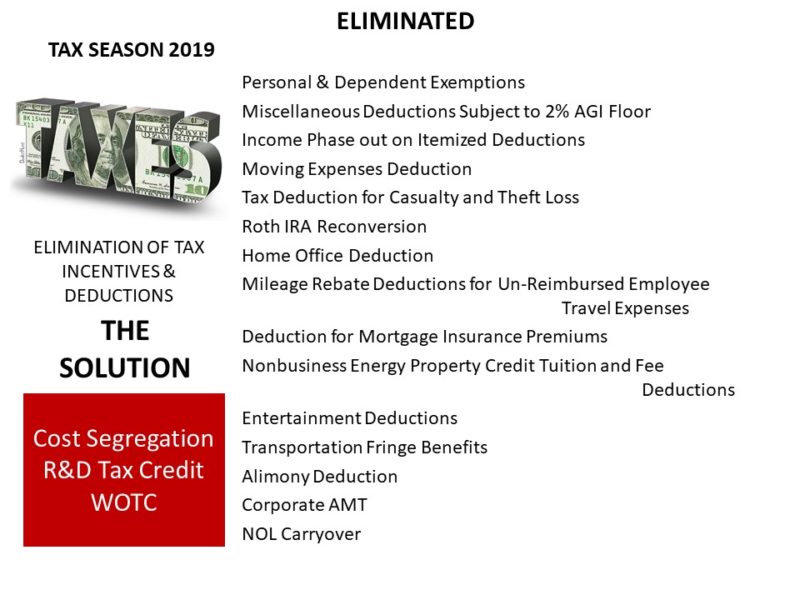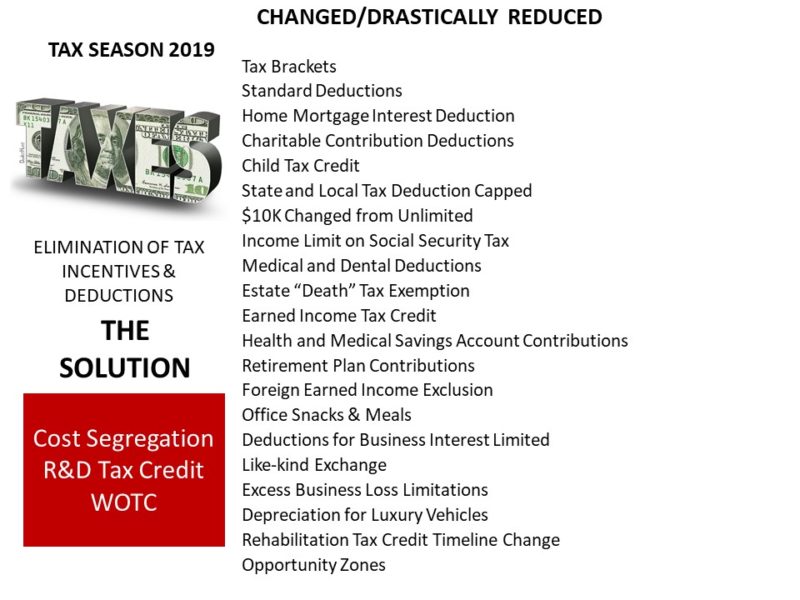What’s Going to Save you From the Mid-Year Tax Changes?
What’s Going to Save you From the Mid-Year Tax Changes? https://csuiteold.c-suitenetwork.com/advisors/wp-content/themes/csadvisore/images/empty/thumbnail.jpg 150 150 Dana Pope https://secure.gravatar.com/avatar/944f3c0406efefd3afbf1825e33c5962?s=96&d=mm&r=g

The 2019 Mid-Year Tax changes eliminated or drastically reduced tax incentives and deductions that businesses depend on. Some of the tax changes took effect in 2018 and also impact the filing of 2019 taxes. In particular, The Tax Cuts and Jobs Act (TCJA) added dozens of tax changes that directly affect businesses. These changes are incentives and deductions that firms use to offset their tax liability.
Although, according to the IRS, “The new law changed tax rates and brackets, revised business expense deductions, increased the standard deduction, removed personal exemptions, increased the Child Tax Credit and limited or discontinued certain deductions.” www.irs.gov. Those deductions are what businesses have counted on for years.
Making it to the chopping block, here are a few deductions that have been eliminated:
Moving expenses deduction, Mileage rebated deduction, Entertainment deductions, Transportation fringe benefits, Corporate AMT, and NOL carryover, to name a few. Not only do we lose them, but we have to discover what each of them proposes.
Here is an example pertaining to entertainment. “The new law generally eliminated the deduction for entertainment, amusement or recreation expenses. But, taxpayers can continue to deduct 50 percent of the cost of business meals if an employee of the taxpayer — is present and the food or beverages aren’t lavish or extravagant.” www.irs.gov. We are noticing terms like those being used more often. What is considered lavish, extravagant, or a fringe benefit? It’s our responsibility to ascertain how the IRS defines them.
Now let’s look at what has been drastically reduced:
Tax brackets, Standard deductions, Charitable contribution deductions, State and local tax deduction capped at $10k from unlimited, Office snacks and meals, Like-kind exchange, Excess business loss limitations, Depreciation for luxury vehicles and more. Again, how does the IRS define what each means? How much is a business going to have to make up for from losing these deductions? These changes will affect the filing of 2019 and future returns and don’t count on any of them coming back.
Keeping up with all the changes requires experts that specifically focus on the monumental amount of information in over 74,000 pages of the Federal Tax Code. Your CPA and Accountant are not able to and don’t want to know all the ins and outs of the tax laws for this year. They would need to hire experts who are proficient in each of the myriad of fields. That means they hire more people and charge their clients higher rates. CPAs have 73% of their clients with one foot out the door so they don’t want to raise their prices.
Let’s turn this around. What didn’t go away? The Tax Payer Certainty and Disaster Relief Act, coming in under the Ways and Means Committee, extended WOTC (Worker’s Opportunity Tax Credit) through 2020. What also remained is Cost Segregation and R&D Mitigation. These are tools that will help offset the tax pain businesses will face in 2020.
Through these 3 programs, businesses get to keep the money instead of splitting it with the IRS. Having an engineered Cost Segregation Study executed, which is what the IRS recommends, a business can receive a sizable amount of benefit. My definition of sizable can be hundreds of thousands of dollars.
Accordingly, WOTC benefits have increased. Along with Cost Seg and WOTC, the biggest change of all comes from R&D mitigation, where tens of thousands of dollars are available in manufacturing of all kinds.
It’s ridiculous to pay the IRS more than we are required. It’s absurd not taking advantage of all the benefits, the money, that’s earmarked for businesses and just let it sit. The answer is before you. Have an engineered Cost Segregation Study completed, take advantage of WOTC, and realize what an R&D Mitigation can do for you.

